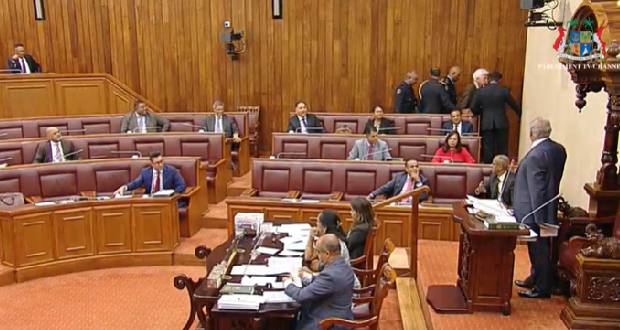Publicité
Jumping the gun?


<figcaption> </figcaption>
Since the 2019 election, the Mouvement Militant Mauricien has gone from being allergic to alliances to now becoming the most enthusiastic about it. The three parliamentary opposition parties have been growing closer of late, although now the MMM leader, Paul Bérenger, is openly talking about an electoral alliance and which party will get what if they win. This with four years to go to the next election.
The MMM’s enthusiasm is not unreasonable. In the last election, it went alone and made little headway outside Rose Hill-Beau Bassin. The enthusiasm may be understandable, but the haste is not. It’s rare for parties to commit themselves to an alliance this early on because no party wants to see its own chances at the polls suffer because of missteps or gaffs of its prospective alliance partners. And the longer an alliance is in the making, the greater the likelihood that it could blow apart due to mixed signals from party leaders or supporters and candidates having time to grumble that their party did not get enough out of the deal. This is why formal electoral alliances are usually quick, shotgun affairs on the cusp of elections. Surely not four years before an election.
The opposition parties are talking about alliances because there is little else that they can do at this stage. Mere unpopularity will not get rid of a government. The old Labour Party was unpopular too, but survived a street movement and a razor thin parliamentary majority throughout the late 1970s until it was ousted in the 1982 elections. Likewise, today there is no constitutional way to get rid of the government no matter how unpopular it is.
Electoral petitions in the courts deposited by the opposition parties are asking for recounts in some constituencies, not overturning the 2019 election as a whole. If successful, they can be used to politically attack the legitimacy of the government or change the balance of power within parliament but are not in of themselves going to get rid of the government. Until now, the opposition parties looked to piggyback on civil society protests led by Bruneau Laurette. But Laurette’s movement seems to be running out of steam, getting bogged down in a contradictory tactic: they attacked the MSM-led government as corrupt and nepotistic that dominates and uses the machinery of state, including the police. But Laurette, by increasingly relying on complaints at the police station is looking to that very same state machinery to hold the government to account. Thus far, his movement seems to following the same trajectory of previous civil society movements: a loud bang followed by a slow fizzle.
Nor are the opposition parties animated by an alternative vision of how to respond to the economic crisis. Mauritius has been in crisis since sugar and textiles started crumbling and every government since then has struggled with the question of how to create a new mass-employing industry for low skilled workers left out. Whenever previous crises have peaked, all parties have relied on the same arrows out of the same quiver: the state extending credit to struggling companies while encouraging cost-cutting and labour market reforms. This was true in 2000-2005, 2008 and in 2020.
So what’s left? Announce an alliance. That will do for now.
For more views and in-depth analysis of current issues, Weekly magazine is available every Thursday for Rs 50 at your usual points of sale. Alternatively, get the magazine delivered to your doorstep for free each week for just Rs2,000 a year and save Rs600. Email us on: weekly@lexpress.mu
Publicité






